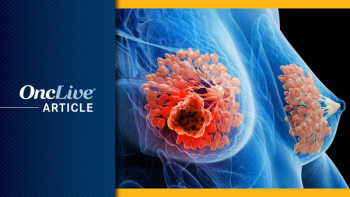
Overview of HER2-Targeted Therapies in Breast Cancer
For High-Definition, Click
Moderator, Adam M. Brufsky, MD, PhD, introduces a panel discussion focused on current and emerging therapies for the treatment of patients with breast cancer. The discussion includes expert perspectives from Kimberly L. Blackwell, MD, Joyce A. O'Shaughnessy, MD, Mark Pegram, MD, Hope S. Rugo, MD, and Denise A. Yardley, MD.
Pertuzumab in combination with trastuzumab and chemotherapy was approved as a neoadjuvant treatment for patients with breast cancer based on the demonstration of an improvement in pathological complete response (pCR) in the NeoSphere trial. In the phase II study, the pCR rate with pertuzumab, trastuzumab, and docetaxel was 45.8% compared with 29% for trastuzumab plus docetaxel, explains Brufsky.
The approval of pertuzumab has changed the way that HER2-positive breast cancer is treated, believes Yardley. In general, pertuzumab can be utilized in HER2 tumors with any degree of nodal involved, even for small T1 tumors, Yardley believes. The label for pertuzumab specifies that it should be used in patients with node-positive T2 breast cancer. However, O'Shaughnessy says, since the magnitude of benefit is so great, it may be appropriate to treat patients with HER2-positive T2 N0 or T1 N1 tumors.
In many situations, the medical oncologist may not see a patient until after surgery. As a result, it is important that all members of a treatment team understand the impact of neoadjuvant pertuzumab on the overall outcome, states Rugo. In addition to surgeons, pathologists should be made aware that HER2 status is important early in the process, even for small tumors, Blackwell adds.
In general, physicians at Stanford are utilizing the same eligibility criteria used for adjuvant HER2-targeted therapies in order to determine if treatment with neoadjuvant pertuzumab is appropriate, Pegram states. Moreover, for patients who do not achieve a pCR from the neoadjuvant combination, there is an ongoing clinical trial examining a switch from trastuzumab to adjuvant T-DM1 or continued trastuzumab.




































